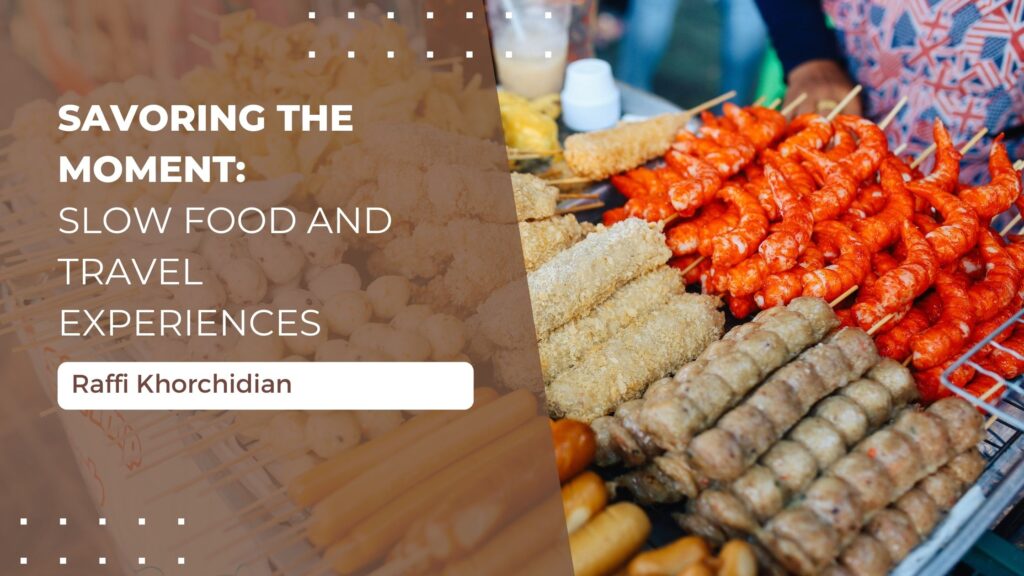
The slow food movement offers a refreshing approach to dining and savoring the moment in a world that often seems to move at an ever-accelerating pace. This culinary philosophy, which began in Italy in the late 1980s, emphasizes the importance of enjoying food mindfully and appreciating the entire journey of a meal, from its ingredients’ origins to its preparation and consumption. When applied to travel experiences, slow food adds depth and richness to the adventure, allowing travelers to connect with local culture, traditions, and flavors more meaningfully.
Local Flavors and Ingredients:
One of the central tenets of the slow food movement is an emphasis on local, seasonal ingredients. When traveling, this approach encourages exploration of the local food scene and focuses on dishes with ingredients grown or produced in the region.
Connection to Culture:
Food is an essential component of any culture, and exploring and appreciating regional cuisine can provide a deeper understanding of the people and their way of life. Traditional dishes and cooking methods often carry history, tradition, and regional pride stories.
Culinary Heritage:
Many regions have culinary traditions that have been passed down through generations. Slow food encourages travelers to seek out these time-honored dishes and cooking techniques. These experiences allow travelers to immerse themselves in the area’s culinary heritage and gain insight into how history and culture have influenced local cuisine.
The Joy of Preparation:
Slow food also celebrates the pleasure of cooking and food preparation. While traveling, taking a cooking class, or participating in a local food market can be a rewarding experience. Learning how to prepare a regional dish or observing a skilled chef at work adds a new dimension to the travel experience and creates lasting memories.
Mindful Dining:
The slow food movement encourages mindful dining, which means savoring each bite and being fully present during the meal. This practice allows travelers to fully appreciate the food’s textures, flavors, and aromas, leading to a more gratifying and memorable culinary experience.
Taste Exploration:
Slow food encourages travelers to leave their comfort zones and explore new tastes and flavors. Trying regional delicacies and unusual ingredients can be an adventure, broadening one’s palate and culinary horizons.
Embracing a Different Rhythm:
In a world that prioritizes speed and efficiency, slow food encourages travelers to embrace a different rhythm and appreciate the value of taking one’s time. It promotes a more relaxed and contemplative approach to travel, allowing individuals to savor the moment and create lasting memories.
The slow food movement offers a compelling framework for enriching travel experiences by encouraging a deeper connection with local culture, culinary traditions, and the joy of mindful dining. Whether it’s relishing a traditional dish, learning to cook like a local, or simply savoring a meal slowly and deliberately, travelers can enhance their journeys by embracing slow food principles.